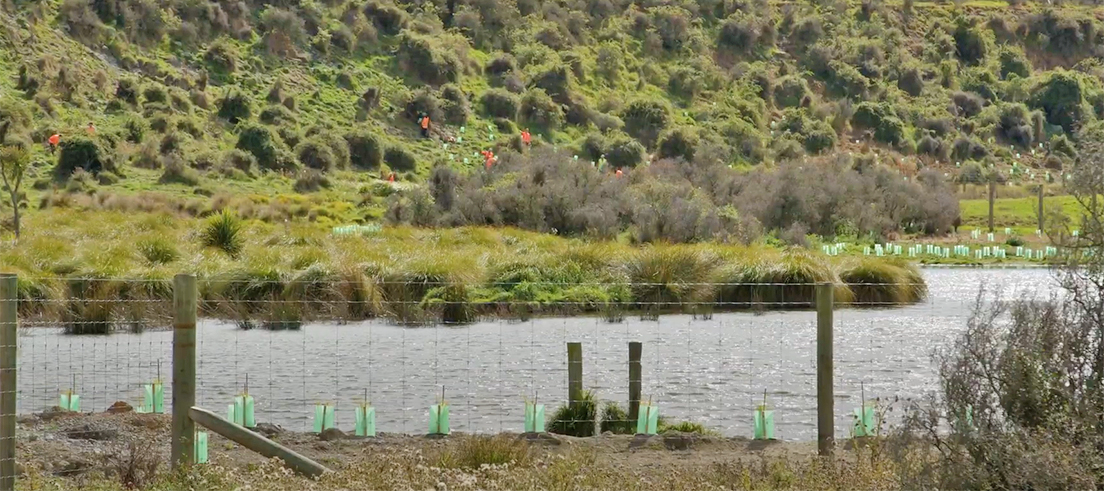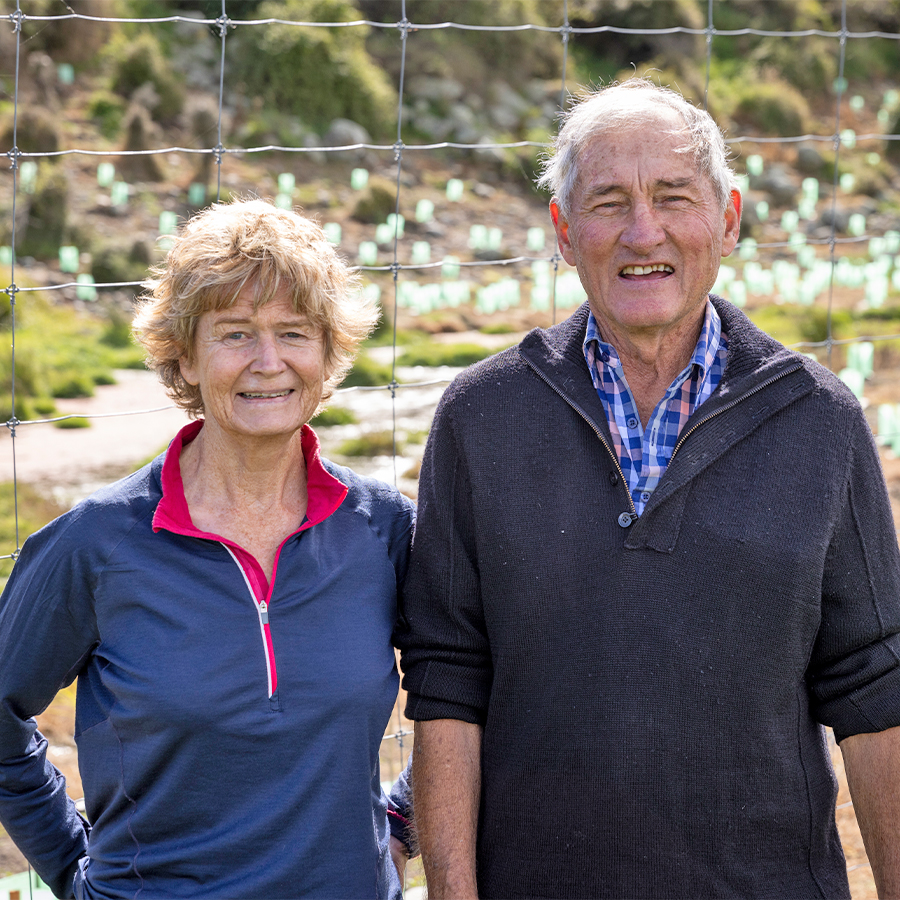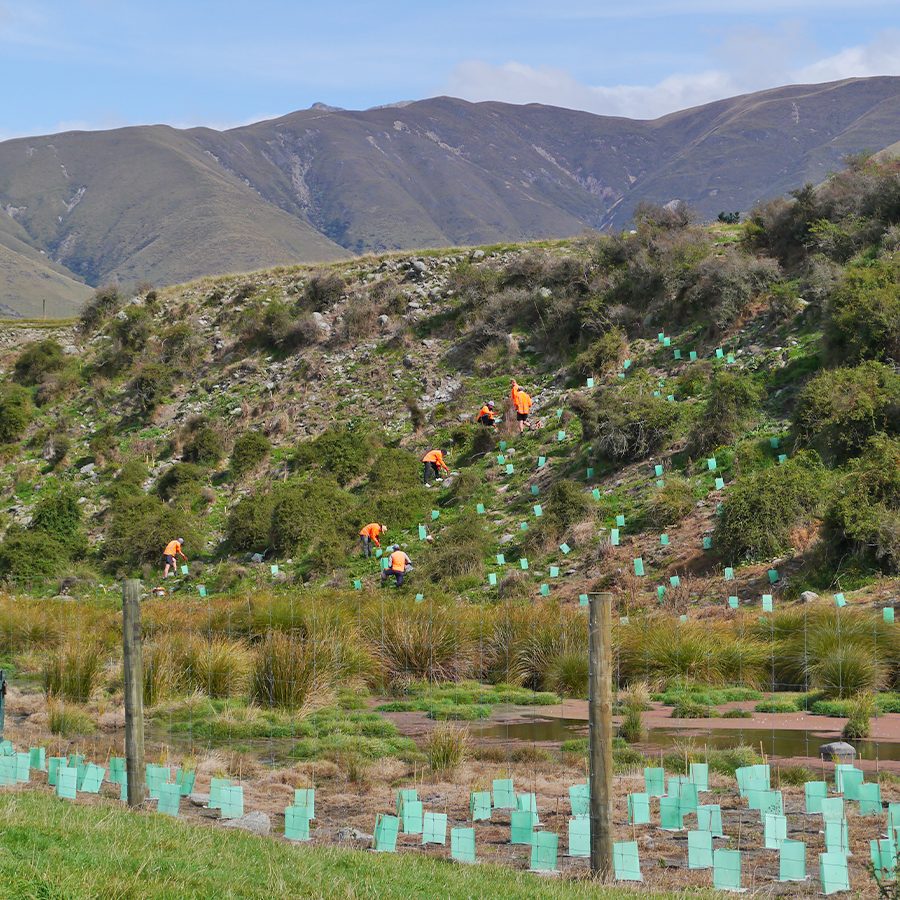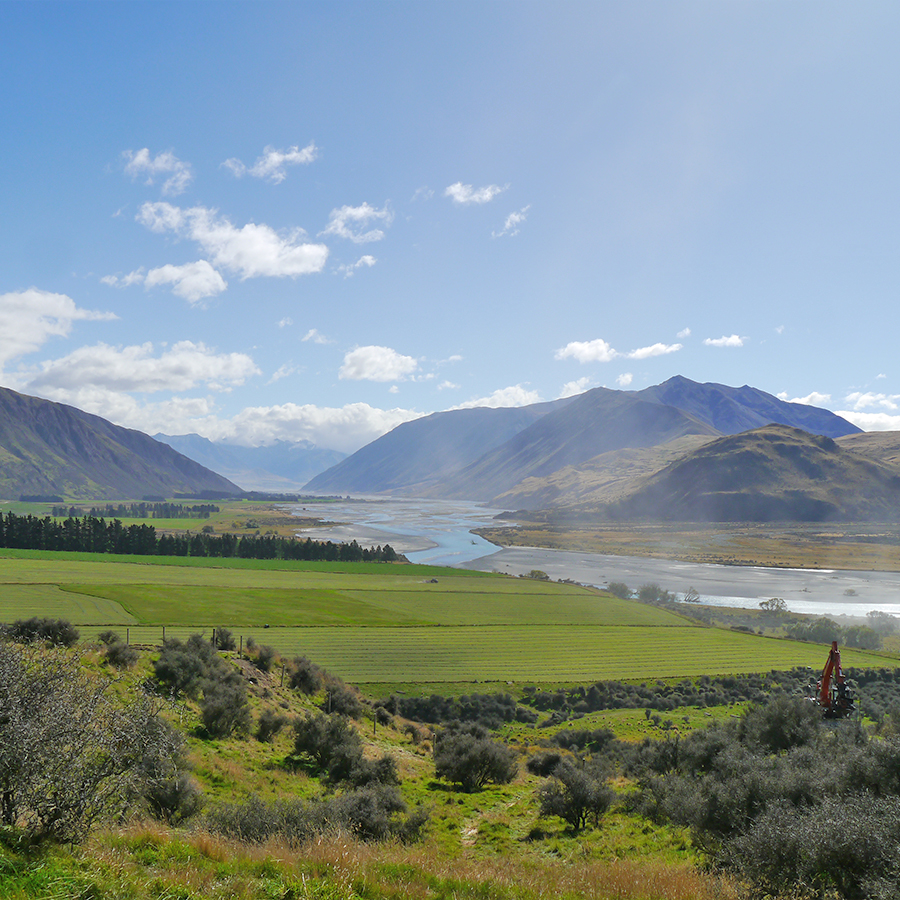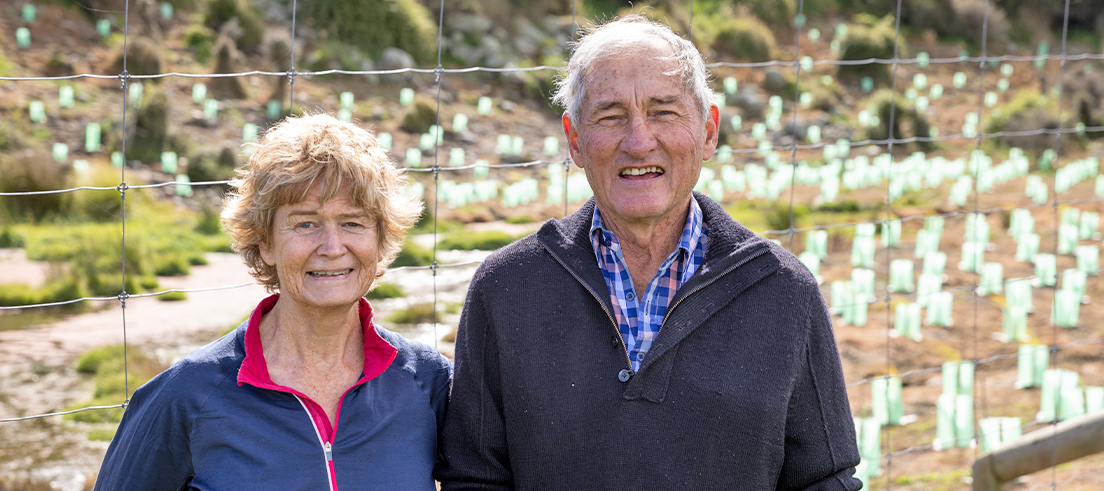
Landowners restoring upper Rangitata catchment to pristine environment
The Upper Rangitata Gorge Landcare Group is a passionate group of landowners committed to controlling weed and animal pests in the upper Rangitata riverbed and tributaries.
The group formed from the old Rabbit Board in 1992, when upper Rangitata landowners, led by Ro Acland and Laurie Prouting, recognised that significant action and money was required to control weeds and pests on unoccupied crown land in the upper catchment.
In the same year as their formation, the Landcare Group established an agreement with the Department of Conservation (DOC), Environment Canterbury, Toitū te Whenua Land Information NZ, Fish & Game, Timaru District Council and Ashburton District Council for ongoing weed and pest control.
Over the last 30 years, this commitment has proven to be a recipe for success, with additional community donations including from Rangitata Diversion Race Management Ltd (RDR).
Collaboration a recipe for success
Sally Stevens has been an active member of the Landcare Group for 25 years. Until recently, she and her husband Ross managed Whiterock Station in partnership with American owners.
"This iconic Upper Rangitata braided river system provides an outstanding habitat for many endangered birds like the wrybill and black-fronted tern. The combined efforts to control the weeds help to remove potential cover for predators of these birds," she says.
"Additionally, there is an impressive pest control programme, led by DOC, ensuring that the migratory birds have far greater protection."
"When driving up the Rangitata Gorge, the “wow corner” at Whiterock is where the Rangitata River first comes into view. It is such a spectacular mountain vista backdrop and beautiful braided river.
"This view represents the success of a lot of hard work and what can be achieved when communities, government and local agencies work together. There is no “sea of yellow flowering broom and gorse” like many parts of the riverbed used to look like.
"This is so impressive, and we are incredibly proud that the riverbed looks so pristine and amazingly free of weeds. Of course, weeds are still there and there is a seed bank in the soil that will always ensure that our weed control work can never stop," Sally says.
United in the restoration goal
Laurie Prouting, former owner of Mesopotamia Station and Chairperson of the Landcare Group is very clear that the weed control project must never end.
"Now that we have started, we must keep at it, and we can never stop. The seed sources from these weeds are pretty oily and they can last in the ground for up to seventy years before germinating so that gives you an idea of what we are up against.
"As I say, united we stand, divided we fall. It is as simple as that. If we are going to achieve the results that we want to see for our river and the land, we must be united and keep pushing forward together because we need to look after our native species and give them the best chance that we can.
"Our vision is to leave our patch in good order for the next generation by keeping good control of plant and animal pests, improving water quality where we can, planting our native corridor and protecting our achievements to date," Laurie says.
Landcare Group tackles landscape-scale project
In May 2021, the Landcare Group signed a Jobs for Nature (JFN) agreement with DOC. This agreement provides funding over four years for the fencing and planting of waterways, wetlands, and drains, along with further weed and pest control.
The project aims to establish a corridor of native plants that will connect the Group’s efforts in the upper reaches of the Rangitata with the native bush in Peel Forest and further down the river with projects that other groups, such as Arowhenua, are working on along the lower reaches of the awa (river).
Sally took on the role of project manager for the Landcare Group’s JFN project and coordinated contractors to carry out the work.
"The Rangitata River has some beautiful wetlands, along with tributaries such as Deep Creek and Deep Stream. They are such stunning waterways which are now being planted and protected."
Project achievements
"So far, our project has completed 116 kilometres of fencing and we have planted 112,000 native plants with another 92,000 to plant. We are so lucky to be working with our amazing contractors, Landcare Services and High-Country Fencing, who are so committed to this project," Sally says.
Additionally, our nurseries have been amazing, initially Orari Nursery and subsequently Arowhenua Native Nursery whose establishment is another separate, amazing story in its own right.
"It is full circle as the seeds for the plants are sourced from the upper Rangitata, grown in the Arowhenua nursery, and returned here for us to plant. Seeing this corridor come to life will provide fodder and a sanctuary for the birds and the bees. It will be very special," Sally says.
Providing natural spaces for generations to come
The Landcare Group is over halfway through its restoration project with less than two years left. There is an ongoing focus on maintenance of plants which is a vital aspect of this initiative, particularly given the variations in climate that the high country faces throughout the year.
"The main problem for us to overcome is the climate and the weather extremes. We get snow, droughts, and floods and the further up the gorge you go, the smaller the planting window is, so we need to have everything very well planned to make the most of it," Sally says.
The work that the Landcare Group has committed to will last for many generations to come. Both the JFN project and the ongoing weed and pest control in the riverbed are initiatives that bode well for the flora and fauna in the upper Rangitata River.
The Landcare Group will continue to strive for a healthy braided river ecosystem for all to enjoy. Where treasured species (native taonga) are abundant and healthy, and people and communities can connect and thrive.
Kōrero nā te awa Rakitata – Stories from the Rangitata River
Kōrero nā te awa Rakitata is about sharing stories of people’s connection with the Rangitata River.
It’s part of Ko te Whakahaumanu o te Rakitata Awa/Rakitata River Revival - a partnership programme to restore the Rakitata Awa (the Rangitata River) to a healthy braided river ecosystem where native taonga (treasured species) are abundant and healthy, and people and communities can connect and thrive.
The programme began as a partnership between manawhenua and the Department of Conservation (DOC), through DOC’s Ngā Awa programme. It now includes Te Rūnanga o Arowhenua, DOC, Environment Canterbury, Toitū Te Whenua Land Information New Zealand, Central South Island Fish & Game and Timaru and Ashburton District Councils. Partners also work closely with landowners and community groups to achieve the shared vision of revival of the mauri for Rakitata.

